Immediately following the arrival of your bundle of joy, you will want to focus on two priorities. Loving up with your new babe AND giving your outrageously awesome body a chance to recover. Don’t let a lack of prep steal your attention away from these two priorities.
So, pack that hospital-stay kit bag with the essentials early, so you’ll be well catered for whilst in hospital, adoring your new bub.
Checklist for mum
1. Don’t forget the ‘usual suspects'
Shampoo, conditioner, shower gel, hairbrush, toothbrush, paste, deodorant, moisturizer, make-up. Hospitals can smell fairly average at the best of times. Some of my clients bring their most expensive and favorite room fragrance sprays… You can’t have a naked flame in a hospital, but oils and sprays do the trick.
2. Breast pads
Make sure they’re the ones with a large self-adhesive strip (these will ensure they don’t slip out when you’re constantly flipping up and down that feeding bra to feed bub). Choose ones designed with the shape of your breasts in mind :) You’ll need to change these with every feed - up to twelve a day. Buy in BULK and pack in advance.
3. Maternity bras
Make sure you’ve been fitted and have purchased these beforehand. What to look for, is a maternity bra that:
- caters to changing breast and body size - Your breasts will increase up to 3 cup sizes. You’ll need a flexible and supportive bra, to accommodate this.
- is comfortable - This is paramount in the first couple of weeks. Look for no seams that may irritate your breasts in this highly-sensitive stage.
- offer optimum support - When your milk starts ‘coming in’, your breasts will require a firm and supportive bra. Too loose and you’ll end up with Mt Vesuvius breasts, too tight and you’ll block your milk ducts and potentially end up with The Himalayas, including Mastitis.
- has one-hand nursing clips and access for breastfeeding. ESSENTIAL!
Remember, you’ll be wearing a bra at sleep time as well. You’ll need it to hold your breast pads. Your breasts don’t know to stop leaking at night! In fact, this will be when your breasts may get the most engorged and leak all the more…


4. Maternity sanitary pads and cheap large undies (to chuck out afterward)
It is normal to have heavy bleeding after your baby’s birth. This will be normal whether you have had a C-section or vaginal delivery. Lochia is the name given to postnatal bleeding. It typically begins in the hours immediately following birth and continues for up to three weeks. However, in some women Lochia, can last for up to six weeks (Don’t freak out - you’ll be fine).
Some hospitals provide you with your first packet of sanitary pads. However, you’ll need more. If I can suggest too that you ‘splash out’ a bit with these. Buy the most comfortable ones available. You already feel like a bit of a train wreck, and little things like feeling pampered ‘down there’ help a great deal.
5. Maternity PJs / Nighties / Clothes
What to look for:
- Smart design in each - These maternity pieces need to be highly breastfeeding-friendly.
- Good, breathable fabrics. Again, new mums are sweaty mums. Look for non-odorous fabrics.
- Support - some designs may have built-in bras.
6. Your own pillow
A heads-up - The hospital carries pillows, with a plastic lining underlay. They sound and feel awful and they make you sweat and you’ll be doing this a lot as it is. Bring your own pillow for the best slumber.
7. Entertainment for children (including coloring-inn books)
For visitors with children, or your other children that come in to visit. You won't much be feeling like a trollop of toddlers getting up to shenanigans, nor do you want the onerous task of being the entertainer! Bring in those props.
8. Pawpaw ointment
The go-to nipple prep and healing balm. Organic and safe for baby to ingest.
9. Water bottle and URAL sachets
If you have any grazing or stitches ‘down there’, URAL is fabulous in reducing the acidity levels of your pee and this will help take the sting out of it too. Remember as well, to drink PLENTY of water - this will soften your stools too - which can be difficult to pass for the first time after birth. Charming, I know.
10. Earplugs
If you’re on the maternity ward, you’ll hear EVERY BODY’S baby being wheeled in and out of their rooms for every feed. You can get next to no sleep. If your baby is sleeping in the nursery, the midwives will wake you when they bring her to you. If your baby is rooming in with you, you will still hear her cry… yes, you sure will! Earplugs are pure genius.
11. Snacks/lollies/chocolate/fruit drink, muesli bars
You’ll get ‘the munchies’ at the strangest hours, usually not coinciding with hospital feeding times.
12. A book to read
Perhaps one that will help with breastfeeding or baby-settling techniques. Although let’s face it, the baby is a bit too captivating by herself.
13. Plastic bags for dirty clothes (for you and bub)
Better still, if you have someone to collect these clothes and take them home to wash them for you, that would be ideal. You’ll have enough to do when you arrive back home :)
Checklist for bub:
As a suggestion, check what your hospital provides first, you may need:
- Nappies - Unless you’ve got someone couriering your dirty nappies from the hospital and back again, you’ll need to use disposable ones. Bring 1 bulk packet.
- Wipes - 1 large packet.
- Outfits for stay - At least 5 of these.
- Singlets - At least 5 of these.
- Outfits to go home - something cute and photo-worthy (although let’s face it, she’s always photo-worthy!)
- Bunny rug or wrap - It could be cooler outside than what she’s used to.
- Mittens - weather dependent.
- Socks - always. Their little toots are always cool and they’re not moving around, like us.
- Dummy/pacifier - I know… but just in case.
These will be some of the most cherished days in the life of your family. This simple preparation will ensure that you can focus on what’s most important.
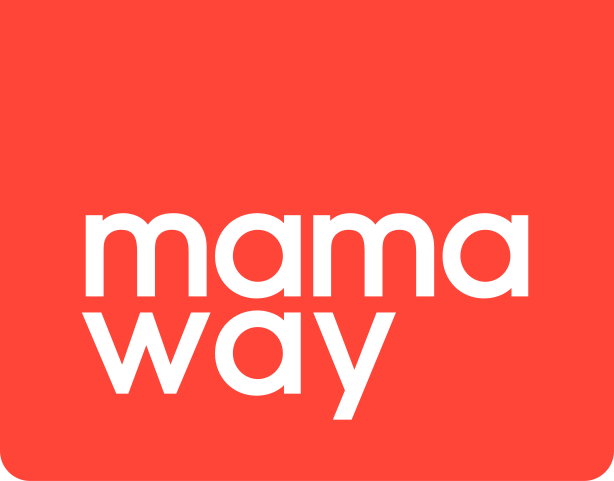

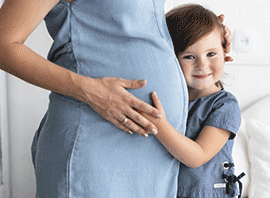
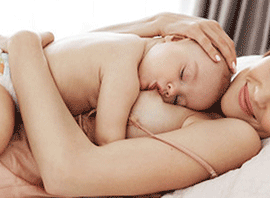
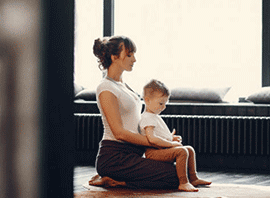
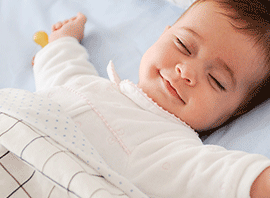












Validate your login
Sign In
Create New Account